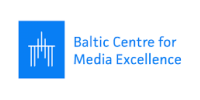Guiding Principles for the EDMO Network
The European Digital Media Observatory is a network of consortia that brings together a multidisciplinary and transnational community of independent fact-checkers, media literacy experts, and researchers engaged in detecting, exposing and countering disinformation, while developing the epistemological bases for relevant policies, notably in the field of media, digital services and associated educational programmes. It consists of a central platform, EDMOeu, which connects and coordinates the activities of 14 national or regional Hubs across 27 EU countries and Norway, to ensure their widest possible impact, in collaboration with media organisations, online platforms, field experts and policy makers.
While each member of the EDMO Network carries out its activities in full autonomy, in accordance with the specific terms and conditions established within each consortium, all members jointly pursue a common mission, which is to foster a deeper understanding of, and improved responses to disinformation, disseminate research results, test solutions, and contribute to a more transparent, trustworthy and resilient information ecosystem. In pursuing their mission, all members of the EDMO Network are committed to the following guiding principles:
1. Independence
All members of the EDMO Network have set up governance structures that safeguard their independence, particularly with regard to governments, the European institutions and public or private funders. All members freely choose the themes they intend to address, whether in research subjects, fact-check articles or media and information literacy actions, while providing a pluralistic, inclusive and open platform that focuses on the challenges of disinformation. No external funder, whether public or private, may be part of the decision-making bodies of any consortium, nor influence their decision-making processes, including priority setting, working methods and results. The European Commission may participate to such bodies only as an observer for monitoring the proper deployment of relevant funding agreements; it may also exchange information and provide feedback to ensure compliance with such agreements, without impairing, however, the full autonomy and discretion of Network members’ activities.
2. Integrity
Partner organizations within the EDMO Network commit to abide by recognized ethical and professional standards such as the European Code of Conduct for Research Integrity or the specific standards applicable to their field of activities (e.g., the European Code of Standards for Independent Fact-Checking Organisations of the European Fact-Checking Standards Network).
Moreover, all members of the EDMO Network are committed to appropriately manage possible conflicts of interest within their internal decision-making processes. To this end, any person participating in decision-making bodies and/or processes is bound to disclose substantial interests he/she may have in sectors/sub-sectors of the information ecosystem that might jeopardize his/her independence, to refrain from taking part in activities that could be affected by such conflicting interests, and to step down from his/her role, should such a risk occur. In this context, a conflict of interest refers to a situation where the impartiality and objectivity of a decision, opinion or recommendation of a person taking part to the decision-making processes is or might be perceived as being compromised by a personal interest held or entrusted to a given individual. Relevant personal interests may be of financial or non-financial nature and may concern a personal or family relationship or professional affiliations, including former employments or appointments, and other relevant outside activities.
3. Transparency
All members of the EDMO Network are committed to be transparent regarding the identity of the organisations forming part of the consortium, their funding sources, and ensure that the outcomes of their activities carried out for EDMO, be it in the research, fact-checking, media literacy or policy areas, are publicly accessible.
4. Neutrality
As regards their editorial products and public-facing initiatives, all members of the EDMO Network observe a strict policy of neutrality from political or industry standpoints. Thematic choices, methodological approaches, findings and communications, whether in research subjects, fact-checking articles, media and information literacy actions and policy analyses, are non-partisan in nature and intended to solely serve the public interest.
5. Pluralism
The EDMO Network integrates a significant number of universities, research centres, fact-checking newsrooms, civil society and media literacy organisations, each of them pursuing its own editorial line, research agenda and educational goals in full autonomy. Moreover, each member of the EDMO Network regularly exchanges content with other members for publication on its own platform, so as to offer different perspectives on such topics and foster internal plurality on issues of common interest.
6. Diversity and inclusion
Multidisciplinary and transnational by design, the EDMO Network aims at tackling the multifaceted challenges posed by disinformation, taking into account the specificities of each country or linguistic area it covers. Moreover, its research, fact-checking, policy analysis and media literacy activities are intended to enhance societal resilience across all segments of the population, irrespective of gender, ethnic origins and political or religious beliefs, with special attention to the most vulnerable.
7. Scientifically grounded interventions
The EDMO Network aspires to advance independent, original, high-quality and impact-oriented research on disinformation with a view to offering a body of facts, evidence and tools that gathers stakeholders and acts in the interest of society. For this, it places value on the grounding of new insights into this phenomenon on rigorous scientific theories, hypotheses and methods. It also encourages the development of hybrid approaches that combine methods from the empirical sciences with those of the humanities, as well as research that brings to bear the latest tools and techniques from data and information science.







